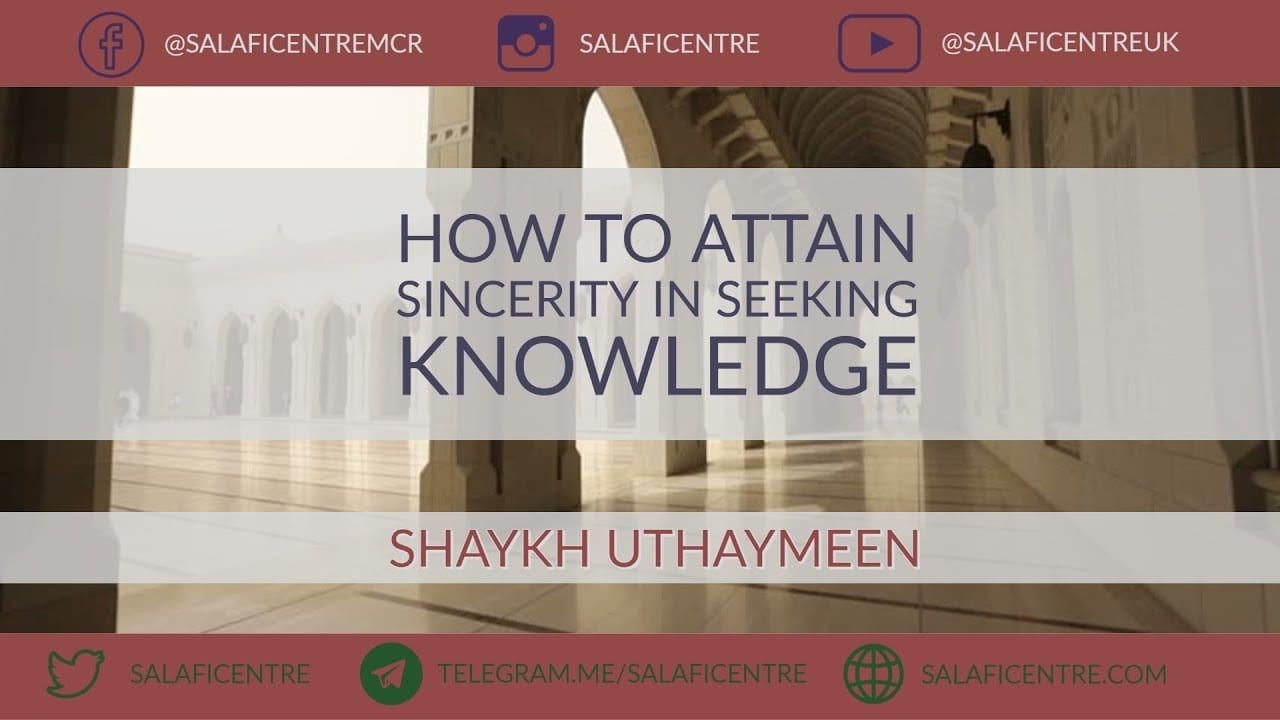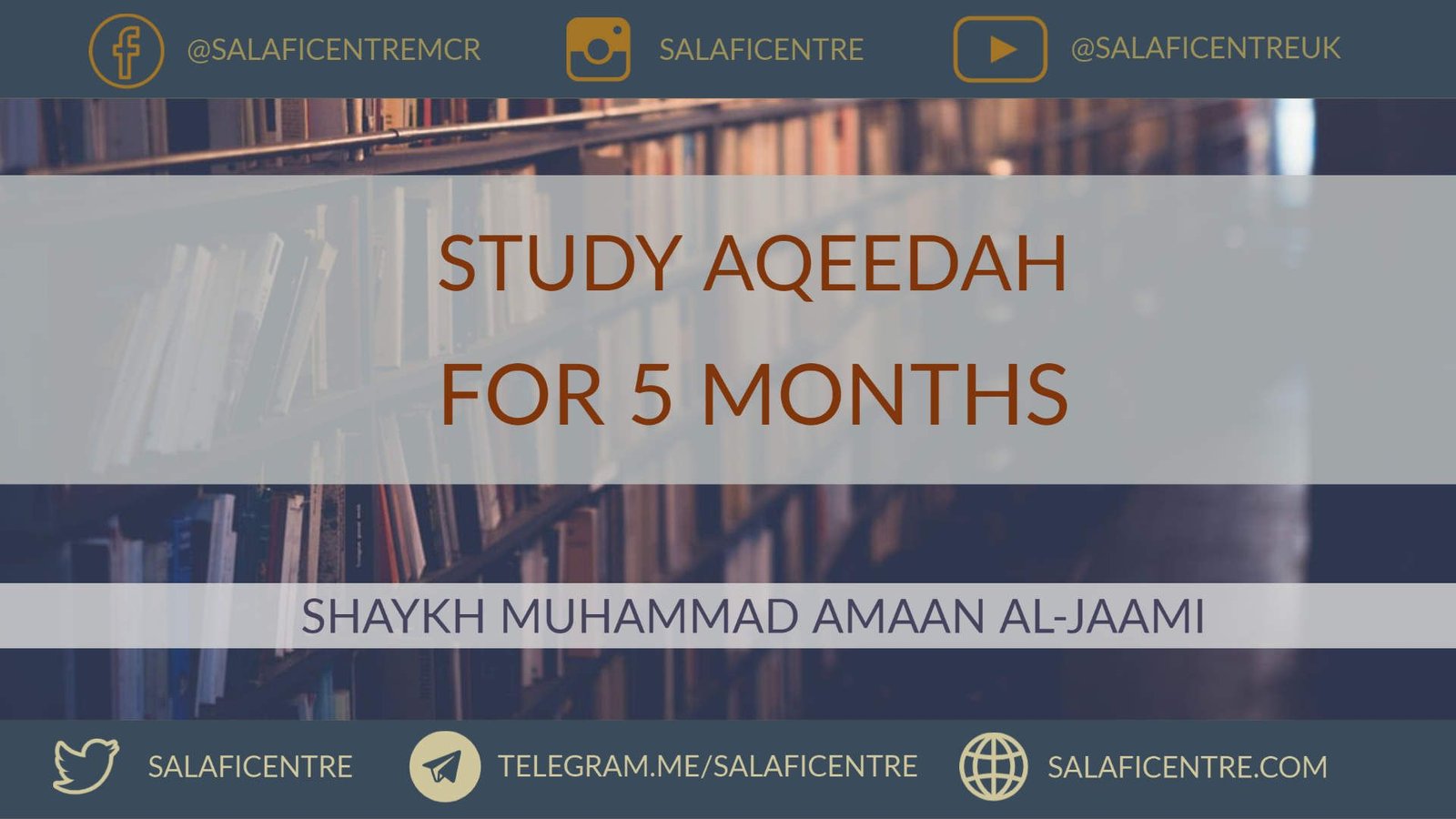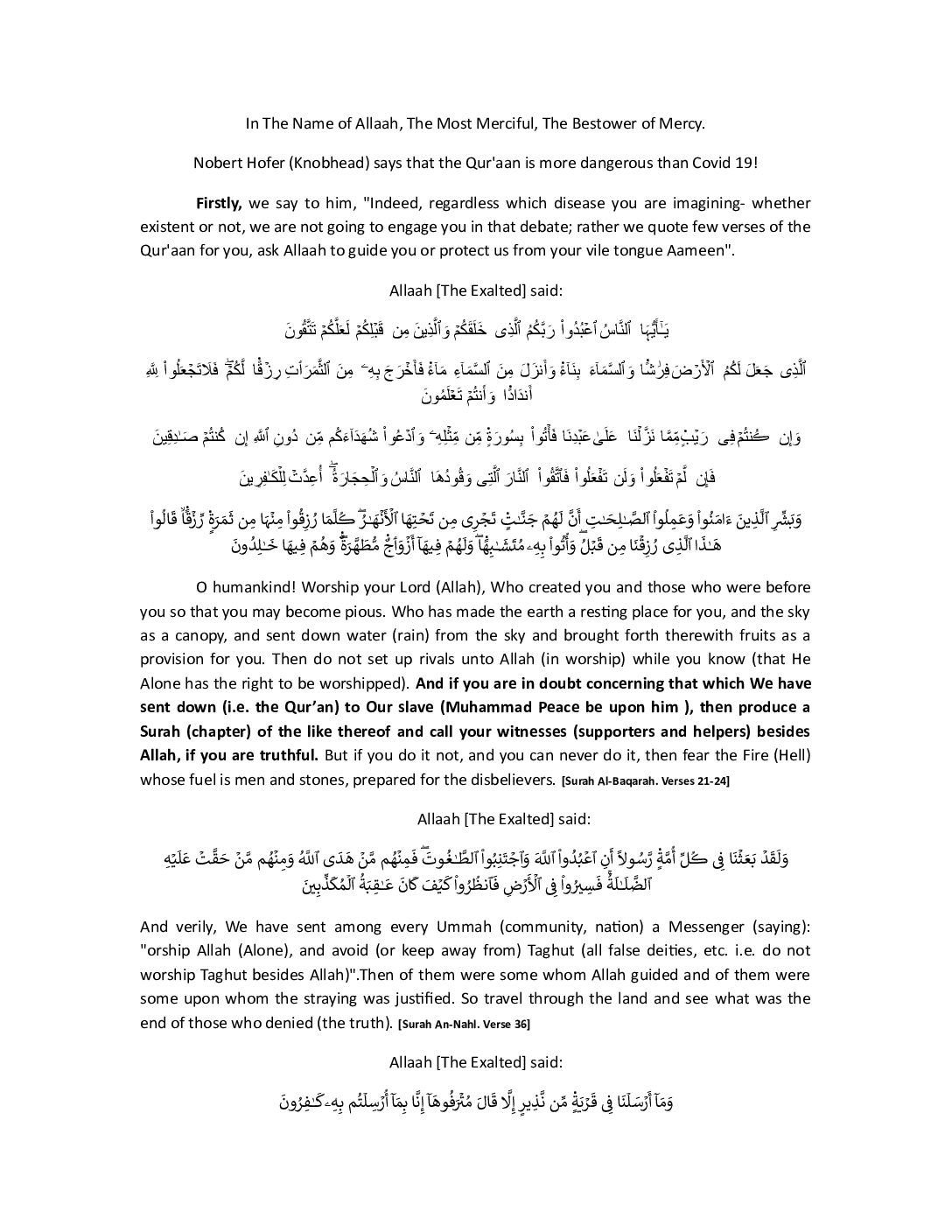Islam and the Worldly Sciences – a gift to fellow primary and secondary school teachers
In The Name of Allāh, The Most Merciful, The Bestower of Mercy.
Islam_and_the_worldly_sciences_final
Islam and the Worldly Sciences – By Imam As-Sadi, may Allah have mercy upon him
We praise and thank Allah for guiding us to the noble Salafi Methodology and acquainting us with both contemporary and earlier scholars of the Ummah. Several years ago, we encountered this enlightening treatise in Arabic. As we explored its contents, we recognised its significant value as a vital reminder, particularly in our capacities as educators in primary and secondary education. This is especially relevant for those teaching physical, natural, and social sciences, as it helps us maintain a clear focus on the Islamic approach to worldly knowledge for ourselves and our students. It is essential that we approach these subjects with a clear intention that aligns our religious goals with worldly aspirations that are pleasing to our Creator. Acknowledging that Islam provides a structured framework for assessing the merits and drawbacks of worldly sciences, grounded in the principles of divine revelation, is crucial. We pray that this treatise serves as a source of reflection and inspiration for both ourselves and our collegues.
The author, Imam Abdur Rahman Bin Nasir As-Sadi, may Allah’s mercy be upon him, addressed various issues with precision in this valuable treatise, which also showcased several social issues during his era.
He began by establishing a robust foundation, affirming that the words, judgments, and decrees of the Creator are indisputable. He then demonstrated how contemporary scientific understanding harmonizes with Islamic principles, bolstering his claims with evidence drawn from divine revelation and citing essential tenets to enhance his discourse. Furthermore, he cautioned against the perils of ignorance, which could lead to unfounded assertions and proposals regarding this matter.
He gracefully continued the dialogue, presenting compelling evidence of the extraordinary traits of the universe. This encompassed the awe-inspiring signs present in the cosmos and its inhabitants, all of which underscore the Creator’s perfect Names and Attributes. He encouraged deep contemplation of creation, drawing parallels from daily experiences such as nourishment, the intricacies of the digestive system, and the brilliance of human intellect. Through these insights, he illustrated how such reflections prompt believers to ponder, in contrast to materialists who fail to grasp these marvels in manner pleasing to their Creator. Moreover, he elaborated on the stages of fetal development, the unique qualities of living beings, and their innate guidance towards realising their purposes. All these phenomena are designed to inspire humanity to recognise their Creator and to harness the wonders of the universe for their own benefit.
He elaborated on the essence of guidance, which is rooted in the Quran and the Sunnah, complemented by the proofs provided to the Messengers. This divine guidance serves as a steadfast compass for both religious and worldly matters, with Islam being the final path. Abandoning this path renders true success in this life and the hereafter elusive. The discussion then shifted to the themes of reflection and consultation. After contemplating the Creator’s guidance, the vastness of the universe, and the extraordinary gifts granted for the benefit of creation, individuals either pursue these blessings or seek counsel when uncertain about the potential advantages and disadvantages. This method is designed to ensure well-being in both religious and worldly affairs, as directed by Allah and His Messenger.
He then addressed the materialists and atheists, whose perspectives on the universe stray from the guidance of the Creator and the path laid out by the Messengers. Their denial of the Creator, His bounties, and the purpose of existence inevitably leads to turmoil, disorder, and trials in this life, along with ruin in the afterlife. Following the resolution of this issue and the adept clarification of certain misconceptions held by materialists, the Imam redirects attention to the significance of righteousness and reform. These principles are essential for fostering positive human relationships, as explicitly detailed in divine law. At the heart of this righteousness lies the highest purpose, rooted in the purity of Islamic Monotheism and adherence to the path of the Messenger, which together form the bedrock of genuine well-being and social harmony.
Furthermore, he cited verses from the Qur’an to illuminate some of the general and specific matters of welfare, addressing both religious and worldly matters, thereby illustrating that the Religion comprehensively encompasses all elements essential to human well-being. At this juncture, it became imperative to draw a clear line between those who reject this sacred path and the faithful adherents. He criticised those who seek to diminish the religion by branding it as outdated, while also shedding light on various societal challenges, including the rule of law, punitive measures, and the social framework as prescribed by divine guidance, juxtaposing these with the adverse effects of deviating from such principles. Moreover, he delved into the subject of intellectual freedom and the potential repercussions that may ensue when it lacks the direction of divine wisdom from the Creator, who alone possesses perfect knowledge into what is truly beneficial or harmful for humanity across all facets of existence.
As the treatise approached its conclusion, the Imam emphasised a detrimental perspective held by materialists: their rejection of Al-Qadaa Wal-Qadar and their attempt to sever the connection between cause and effect from the Will and decree of the Almighty Creator. By reflecting on the opening of the treatise, one can discern how the Imam articulated that everything stated by the Creator embodies absolute reality, truth, and flawless guidance. He also vividly illustrated the Creator’s all-encompassing Will, perfect knowledge, wisdom, and capability in all that He has fashioned. Thus, a clear link emerges between the initial discussion of the Creator’s omnipotent Will and the concluding topic of Al-Qadaa Wal-Qadar. The materialists’ denial of this fundamental truth equates to a rejection of the Creator, His Actions, His signs, His blessings, and His guidance. In this light, the Imam addresses both the harmful consequences of dismissing Al-Qadaa Wal-Qadar and some of the misconceptions that materialists hold regarding this mighty pillar of Iman.
As the materialists boast of their achievements in worldly matters without expressing gratitude to the Creator for His boundless bounties, the Imam underscored the essence of authentic progress, moral reform, and intellectual advancement. Finally, he made a clear distinction between those worthy of emulation and those who are not, while also drawing attention to the grave peril posed by knowledge associated with those who have turned away from the Creator. These individuals, enamored by their earthly triumphs, mock divine guidance and hinder humanity from the righteous path of Allah. It is indeed challenging to fully encapsulate this analysis; rather, it is up to the reader to form their own conclusions as they engage with this treatise and reflect upon its content. We beseech Allah to bestow upon us awakened hearts that yearn for goodness and to enhance this desire throughout our lives. Amin.
Lastly, to aid the reader, we have included titles in the translation to clearly delineate the various topics discussed by the Imam. The Arabic text, even without headings or subtitles, is inherently clear to the reader.
And Allah knows best








